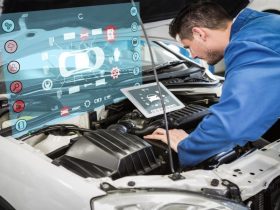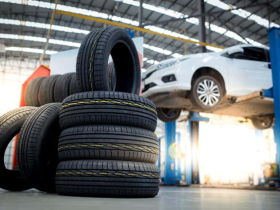The oil pan is a vital shield and reservoir. It holds engine oil safely for constant lubrication flow. Damage to the oil pan can threaten engine survival quickly. Routine checks and safe habits help reduce this risk. Drivers often overlook the pan since it sits low. However it faces road hazards and wear each day. A ten word fact is that careful inspection prevents costly engine failure long term. Proactive care ensures the oil pan serves its purpose fully.
Checking for Visible Leaks
A routine leak check is an essential first step. Fresh oil spots under the vehicle signal early damage. The oil pan gasket may be weakened or misaligned. A cracked or dented pan can also release oil. Drivers should observe parking spaces for dark oily stains. Even small drips often lead to bigger issues later. Regular observation helps detect problems before they grow serious. Early leak detection keeps engines safe from hidden risks. Inspections prevent unseen leaks from draining oil reserves unnoticed, making timely Auto Repair in Augusta, GA an important safeguard.
Watching for Impact Damage
The oil pan is exposed beneath the vehicle always. It can strike debris or obstacles on uneven roads. A dent may look minor but cause serious trouble. Even shallow dents can restrict oil pickup function. Sharp edges of debris can puncture the pan surface. Drivers should inspect the underside after rough driving paths. Small damages are easier to repair when found quickly. A ten word truth is that impact dents silently weaken vital oil pans. Proactive checking after impacts safeguards against long term costly issues.
Listening for Unusual Sounds
A compromised oil pan can reduce lubrication efficiency quickly. Insufficient oil supply leads to metal parts grinding together. Drivers may hear tapping or knocking from within the engine. These sounds signal serious issues needing immediate inspection. The pan may not be holding oil securely anymore.
Scheduling Professional Inspections
Trained technicians offer deeper evaluations than simple driver checks. They inspect the oil pan for cracks dents and leaks. Professional lifts allow full view of the underside safely. They also measure bolt torque and gasket sealing strength. Weak bolts can allow oil seepage without visible signs. Professionals check surrounding parts to rule out other leaks. Scheduled inspections reveal issues beyond the reach of basic observation.
Conclusion
The oil pan requires attention beyond casual care routines. Proactive inspections safeguard against dents leaks and structural weakening. Visible leak checks catch issues before they become severe. Impact damage monitoring ensures debris does not create hidden problems. Oil level checks confirm the system is sealed and balanced. Listening for sounds helps reveal early lubrication failure risks. Professional inspections bring expert detection and repair for long term safety. A final truth is that routine care prevents dangerous oil pan neglect. Protection today secures dependable engines for many future miles ahead.












